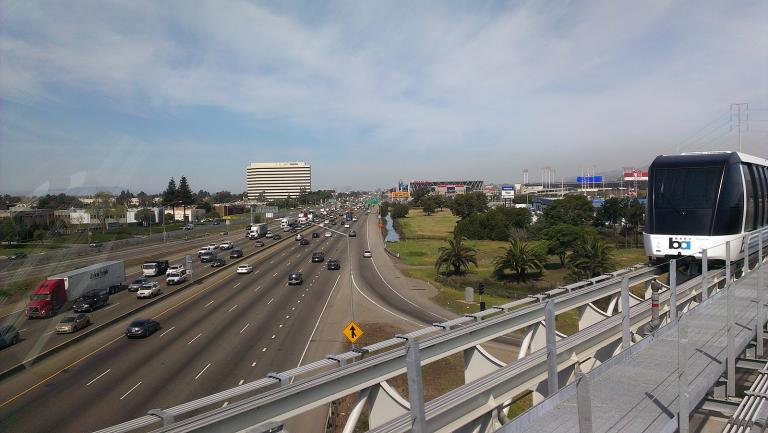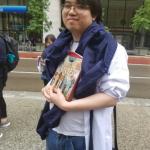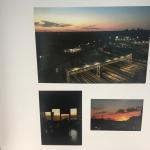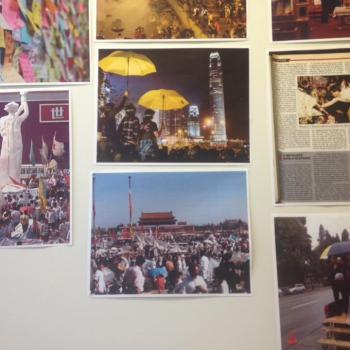
The emotional difference between my wife and me on Always Be My Maybe cannot be attributed to a divergence of opinion on Asian American representation. We are both neither here nor there on the question, neither overly celebratory when something is not very good nor disdainful when we like something. We loved Crazy Rich Asians, for example, not because it had Asian Americans in it — in fact, my view is that the dumpling and mahjong scenes that propel the film to its climax, but are not in the book, are the most patently Asian American intervention into a story that would never fly in Singapore — but because it was a sweet romantic comedy that made us go aww by the end. We liked Always Be My Maybe for the same reason, so it will also not do to explain our differences by personality, though it is true that she is very even-keeled, with a calming effect on those around her, while I am, to say the least, a bit more volatile, with the trade-off of a friendship with me being that along with whatever colorful conversation you might enjoy with me, you’ll also be subjected to my mood swings when the initial fun and games are over.
As we talked about it, it dawned on me that there is a reason I found so many of the mundane parts of the movie so funny, and my wife was merely amused. Unlike me, she didn’t grow up in the Bay Area. Hers was a trans-Pacific childhood, much of it in the Chinese communities of Vancouver where we met, so we have bonded deeply over the commodities of our youth: Pocky sticks, Doraemon being called ding dong in Cantonese, hi-chews, instant noodles, classic Chinese tales, and so on and so forth. But she doesn’t have the same nostalgia for the post-racial fantasy that not only pervaded the popular culture of the nineties in America, but also could be seen worked out in our everyday lives in the Bay Area, the supreme instance being that one time my sister took a field trip to Washington DC with her Christian school and heads turned as people seemed amazed that young pre-teens of all racial formations were walking in a single-file line. I may have been the classical music nerd among my friends, but just the opening doo doo doo doo from Mariah Carey’s ‘Always Be My Baby’ sends me back not just to the nineties, but to that childhood when we thought we had no concept of racism. Does it do anything for you? I asked my wife. The no was firm.
Of course, now we all know better than the post-racial fantasy we grew up with. But the nineties were a naïve time, shot through with an ideology that assumed that white supremacy had been eradicated. Post-racial, in fact, doesn’t seem to cut it when describing the narrative that quilted our popular experience together. Of course, we, like the characters in the film, knew then as well as now all about race and ethnicity. Ali Wong’s character Sasha knows that, just like her on-stage stand-up comedy joke that she is both ‘fancy Asian’ and ‘jungle Asian’ (the offensiveness of which is only mitigated by the genre of comedy), she’s Vietnamese-Chinese, and the Randall Park character Marcus is Korean, last name ‘Kim’ and a mom who inspires Sasha’s culinary sensibilities with a big pot of kimchi jjigae. They’re friends with the very pregnant and queer Michelle Buteau character Veronica, who is not Asian but certainly a person of color. They all know that the differences of racial formation creates difference among them, ones that are brought together through humorous encounter, but the naïveté of a Bay Area upbringing has it that those variations don’t matter because white supremacy is not supposed to be a thing anymore. It’s not a post-racial fantasy that we grew up with. It’s a post-whiteness ideology.
We all know better now — Trump’s still president, Brexit happened before that, far-right white nationalist movements have been tearing through European and American cities — but the thing about growing up in an ideological universe is that you may think you’ve moved out, like Sasha dumping Marcus and becoming a big-time celebrity chef with restaurants in Los Angeles, San Francisco, and New York while engaged to a Daniel Dae Kim hunk, but you take those fantasies with you, even when the place where they were incubated has itself changed. Sasha’s celebrity megalomania, the one that hilariously gets Keanu Reeves into her bed, is driven by the same thing that holds Marcus and his Hello Peril band back: fantasy. Both remain post-white, though they both know better: Sasha can do anything in the world, and Marcus wants to be with his community, dating a caricature of a social justice organizer while his dad goes out with a Diana Ross impersonator. These fantasies explain their actions, Sasha getting bigger as a celebrity while Marcus retreats into his man cave. Working around them is the genius of both the romance and the comedy, with both having to give up a little bit of their imaginary worlds in order to really remember what brings them together: that they are from the same place.
The point of the film, down to its cheesy plotting to a classic nineties rom-com, is to get you to remember where you are from, and if you, like me, are from the same place as these characters, it will send you back even to the inside jokes. What is happening, though, is that the viewers really are being sent back, as this Bay Area doesn’t exist anymore. If it was expensive in the nineties, it has been hollowed out like hell now. If I were to go back to the Bay Area to find myself — like I have done several times throughout my graduate education — I wouldn’t be able to find what I’m looking for. The place has changed, Fremont’s known as a TESLA town now, and everybody knows now that they don’t live in a post-white society. But the working out of these illusions through this story is what powers the hilarity of Always Be My Maybe, where the most important character is not the food, as some have said, but time itself, as it creates a chasm between the naïveté of a post-white childhood and the contemporary world where we know better and are living our dreams anyway.
I suppose some might wonder if this honest account of where I am really from is true, then what is with the intimacy that I feel with the Hong Kong protests, or the clear affinity for the Vancouver suburb of Richmond that I parade in my writing? The answer, of course, is simple. It is that when I double down on where my nostalgia comes from, where my dreams get their material, and where the fantasy has its core, the universal sensibility that can be drawn from the particulars of where I myself am from is that I remember what it means to be at home. There is a reason that the post-white ideology exists. It expresses a longing for that reality to be realized, that a world where racial justice might be brought into such pervasive reality might be brought into existence so that racial formations are no longer determinative of anyone’s future. The vision, of course, is utopic, but at its core, it is the same feeling of being so at home with myself that I also can understand, though it is a very different world from the one in which I grew up, why young people in Hong Kong feel so suicidally desperate to prevent the erosion of ‘one country, two systems’ in their city or why folks in Vancouver harp about an affordability crisis. It is not that home is disappearing in all three places. It is that it never actually existed, but we thought we grew up with it, only to find that if we want to make this world our home, we’ll have to shape it ourselves.
But those lofty aims, far too serious for evaluating a romantic comedy with nineties nostalgia, are why Always Be My Maybe is also funny. Half the time in shaping the world, we don’t know what we’re doing because there are endless layers to the dreams that have shaped us. And yet, maybe that impossibility of self-knowledge and inevitability of self-deception is the very spark that makes sure that the communities that form from realizing such a grounded sense of home stay convivial and catholic instead of moving toward exclusion, purging, and totalitarianism. The point of comedy, down to the symbol of the anti-extradition protests in Hong Kong becoming the very kinds of multi-colored post-it notes that pervade my office now plastered on public ‘Lennon Walls’ and the name of the blog that reveals much of what is going on in Vancouver’s housing crisis being hilariously named The Hongcouver, is that somebody says something to you about who you are and what you are doing that asymmetrical with how normal you thought you were. Always Be My Maybe does that with my nineties Bay Area childhood, a world that has disappeared since the time I’ve moved away from it and yet is still with me, just like the nineties have never left popular culture either. And so I laughed and laughed and laughed, while my wife sat there, probably more amused at me than at the film, which is to say that I’m thankful to the film for strengthening our marriage too.












